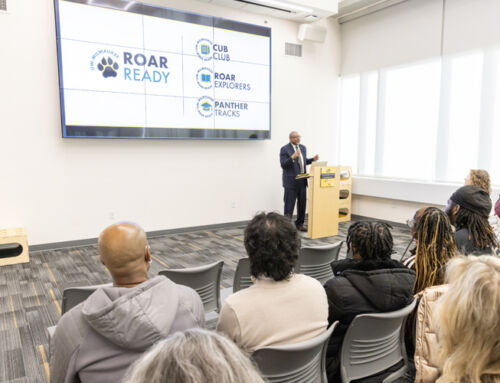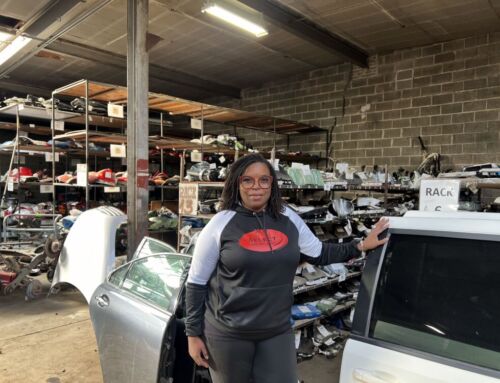By: Allie Shane, Communications Specialist
Need a crash course on crisis management? Look no further than the healthcare sector’s response to the COVID-19 outbreak.
National data from the U.S. Department of Health Services indicate that by the end of 2020, the cumulative number of COVID-related hospitalizations reached 16,809,539. By the end of 2021, this number had more than doubled to 38,853,525.
The pandemic undeniably forced healthcare institutions to pivot.
The Medical College of Wisconsin (MCW) lies at the intersection of higher education and healthcare. During the pandemic, strong leaders ensured the well-being of students, physicians, patients and the surrounding community. MCW Senior Vice President and Chief People Officer Adrienne Mitchell, MBA, was one such leader.
Mitchell assumed her current role at MCW on January 1, 2021, after serving as the vice president, chief human resources officer and chief information officer at Wayne Health in Detroit, Michigan. Mitchell’s transition between two healthcare institutions at the height of the pandemic gives her unique insight into successful crisis response strategies.
“I do think I can speak to what MCW experienced, not only because I came in and was immediately involved, but also because I experienced very similar things at Wayne Health,” said Mitchell.
In a recent MMAC interview, Mitchell reflected on her leadership approach throughout the pandemic and shared key lessons she learned along the way.
Lead with mission, vision and values
When the pandemic began, healthcare institutions nationwide faced the initial challenge of determining the optimal allocation of physician resources. MCW leaders decided to ramp up support for the critically ill carrying the virus and ramp down on elective procedures. Although this decision meant missing out on a significant portion of business and revenue, it reaffirmed MCW’s mission of improving the health of the communities it serves.
“The decisions were easy even though the implications were vast,” said Mitchell.
Leading with care and integrity pertained not only to patient support but also to physicians, staff and students. Healthcare workers were on the front lines, making it virtually impossible to send everyone home. However, Mitchell and the rest of the leadership team did everything they could to ensure the health and safety of those in their organization.
MCW adopted hybrid and remote work arrangements for individuals not in direct contact with patients, and they updated the sick time policy to prevent staff and students from being penalized for staying home to quarantine. Mitchell also implemented extensive contact tracing efforts to further maintain a safe work environment.
Communication matters
The pandemic heightened feelings of uncertainty. As a healthcare institution, MCW quickly became the recipient of an overwhelming number of questions.
“We had more questions than we had answers,” said Mitchell. “We needed to be not only a voice of information for our internal constituencies, but for the community at large.”
Effective communication structures were pivotal in ensuring MCW’s role as a credible resource.
A rapid response team, composed of individuals from departments across the organization, served as the hub for all COVID-related information. The team provided updates and resources via weekly town hall meetings, an infoscope web page, FAQs and more.
“Communication that was as frequent and as transparent as possible was really important for building trust,” she said.
MCW also worked in synergy with its affiliate partners to ensure that communication with internal and external stakeholders remained consistent.
“We sat on each other’s response teams,” said Mitchell. “We tried to stay in sync as much as possible so that our care providers could navigate those environments.”
It takes a village
Through the collective effort of the leadership team, physicians and response teams, MCW was able to lessen feelings of crisis within the organization and throughout the greater community.
Mitchell commended MCW President and CEO John Raymond, who was one of Wisconsin’s leading experts on the virus.
“At a time where our society was very politically polarized, I think it was important to have someone who was trying to be as apolitical and unbiased as possible, who could give factual information as we were learning it,” she said.
She also praised the physicians who took care of incredibly sick patients at their own risk.
“We know a lot more about COVID in March of 2025 than we knew in March of 2020,” said Mitchell. “With very little information on this new virus, people stepped in to take care of these patients.”
While the world celebrated healthcare heroes at the height of the pandemic, Mitchell believes that the recognition should be ongoing.
“I think we should continue to elevate and recognize the sacrifices that these providers made for the world,” said Mitchell.





